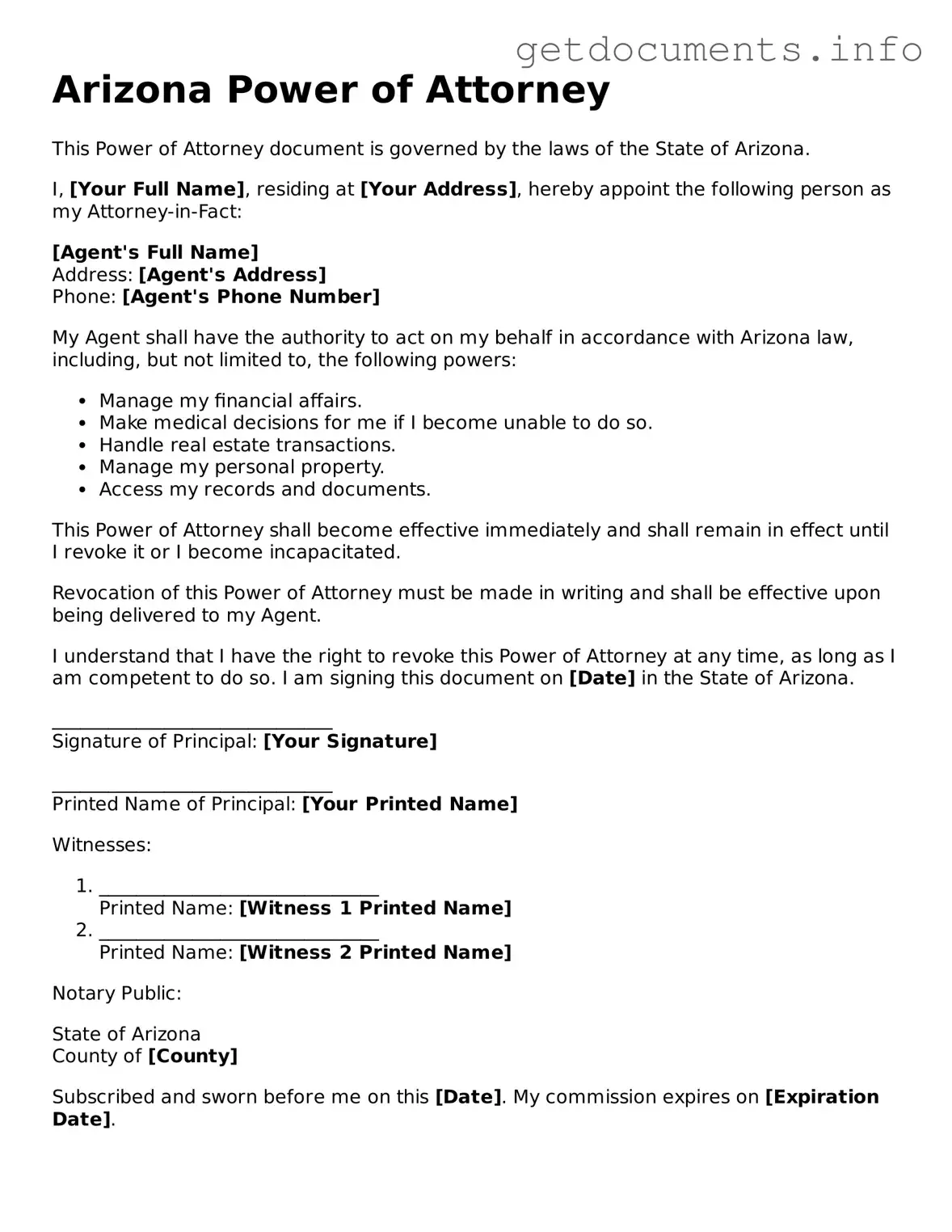Free Power of Attorney Template for Arizona
A Power of Attorney form in Arizona is a legal document that allows one person to grant another person the authority to make decisions on their behalf. This can include financial matters, healthcare decisions, or other important responsibilities. Understanding how to complete this form is essential for ensuring that your wishes are respected when you cannot act for yourself.
Ready to take control of your future? Fill out the form by clicking the button below.
Access Power of Attorney Editor

Free Power of Attorney Template for Arizona
Access Power of Attorney Editor
Got places to be? Complete the form fast
Fill out Power of Attorney online and avoid printing or scanning.
Access Power of Attorney Editor
or
⇩ PDF File
